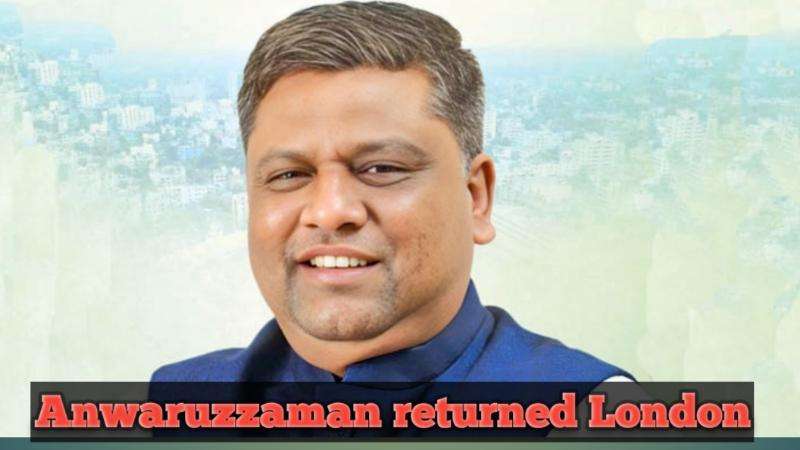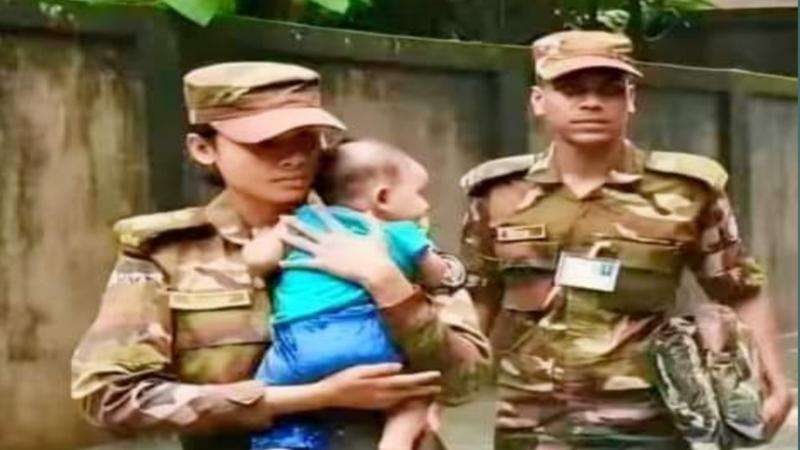On Thursday night, Kamala Harris confidently walked onto the Democratic convention stage and informed the American people that they had a “precious, fleeting opportunity” to support her candidacy and write the amazing nine years since Donald Trump entered the political sphere into history.
The excitement and confidence in the arena were evident despite her 40-minute address not being quite as spectacular as the Obamas' earlier in the week.
The party faithful have not been this thrilled since Barack Obama's first presidential campaign in 2008, thanks to high-profile celebrity endorsements and a general feeling among Democrats that they are starting a new chapter.
The jubilant atmosphere among delegates in Chicago is down to both relief that they don’t have to go into this election with Joe Biden, a candidate whose advanced age was a major liability, and delight at how seamlessly Harris and her running mate, Tim Walz, have assumed their places at the top of the ticket.
But behind the scenes, party strategists are worried about Democratic voters and activists – who will need to turn out, knock on doors and convince their friends and family to head to a ballot box on 5 November – getting carried away.
Opinion polls have moved in their direction in the weeks since President Biden stepped aside but this is still a very tight race. It will be won, too, in a handful of states – Georgia, Arizona, Nevada, Wisconsin, Pennsylvania, Michigan and North Carolina.
In nearly all of those places, it seems either candidate could feasibly win. And if the past six weeks are any guide, the political dynamics could change quickly again in the 70 or so days left.
Jim Messina, a veteran Democratic strategist who managed Barack Obama’s 2012 campaign, told the BBC’s Americast podcast that any certainty Democrats are on course for victory is misplaced.
“Kamala Harris has, since she got in this race, had the best 30 days in American politics I’ve seen in a very long time," he said. "But she is still tied [in the polls]. The Democrats have clawed up from five points down to tied. So it's still a tight race with 75 days left. “
The mood here may have hit fever pitch last night, but a toss-up race shows that Democrats still have a lot of work to do if they are to be sure of winning the White House.
Trump appears to be struggling to work out how to campaign against Harris. He doesn’t seem to know what line of attack to take, and hasn’t even settled on one of his customary nicknames.
One prominent Democratic strategist told me he believes Trump will soon work out how to define Ms Harris in a way that best serves his campaign, as that is his great political skill. And when he does this election will get much harder for Harris.
For all the buoyancy and optimism that’s been radiating from the convention stage, there have been warnings too.
In her speech on Tuesday night, Michelle Obama cautioned the election would be extremely tight. “We need to vote in numbers that erase any doubt,” she told the crowd. “We need to overwhelm any effort to suppress us”.
Her husband Barack Obama followed up with a similar exhortation, in what amounted to a one-two punch designed to motivate the thousands in the arena to hit the streets when they return to their hometowns across the country.
“It’s up to all of us to fight for the America we believe in,” the former president said. “And make no mistake, it will be a fight.”
Candidates standing for election in key swing states that will decide the outcome of this election know all too well how much work there is to do.
“I’ve been telling Democrats everywhere I go this week: ‘Don’t get high on your own supply and think everyone is as energetic as you are’,” Democratic Representative Elissa Slotkin, who is in a tight Senate race in Michigan, told Politico.
On the convention floor, delegates clearly buoyed by the events of this week appeared to have taken the Obamas’ message to heart.
Cameron Landin, a 21-year-old from Georgia, a key southern battleground state won by the Democrats in the last election for the first time in 28 years, said he knew victory could not be taken for granted.
"I really do believe Kamala Harris is going to win," he said, a few hours before Harris took to the stage. "That doesn't mean I'm not nervous."
The regional organiser from the city of Savannah said people like him would focus on one thing: boosting turnout.
"That means people doing 60-plus-hour weeks and seven days a week of organising. It means volunteers getting out there – phone-banking, calling on voters, canvassing.”
"That's what's going to win this," he said, pointing at the crowd of delegates waving posters for Harris and Walz. "People on the ground."
Nevada Democratic Representative Susie Lee, who represents a district that includes part of Las Vegas – said she was under no illusions the election would be extremely competitive, particularly in her swing state.
"It's not at all in the bag," she said. Some precincts in Nevada, she explained, could be decided by as little as 50 to 100 votes. “Clearly, we have to get people engaged and out to the polls.
"But I'll tell you - I do think people are exhausted with Donald Trump," the congresswoman said. "There's a clear choice between Harris and Trump. I think people see it."
Millions of voters watched the political festival the Democrats put on in Chicago – more than 20m viewers tuned in for each of the first three nights.
The Harris-Walz team will almost certainly get a further bump in the opinion polls after this week. But that’s to be expected following any party convention.
The question will be whether the momentum they have been riding will last, especially as the country learns more about Harris, who has so far avoided tough media interviews and released little in the way of policy detail.
Trump has a grip on nearly half of the country. And they know him well after three successive presidential campaigns.
The Democrats could certainly win this election, but they will have their work cut out.
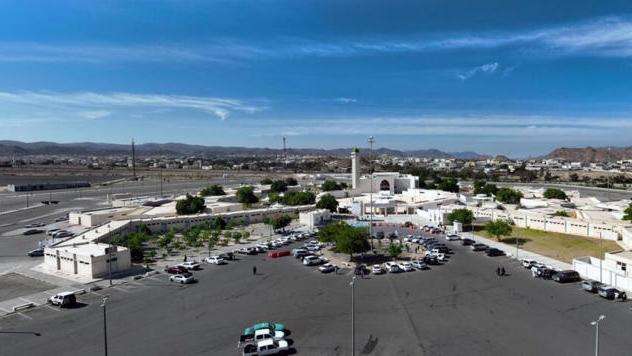
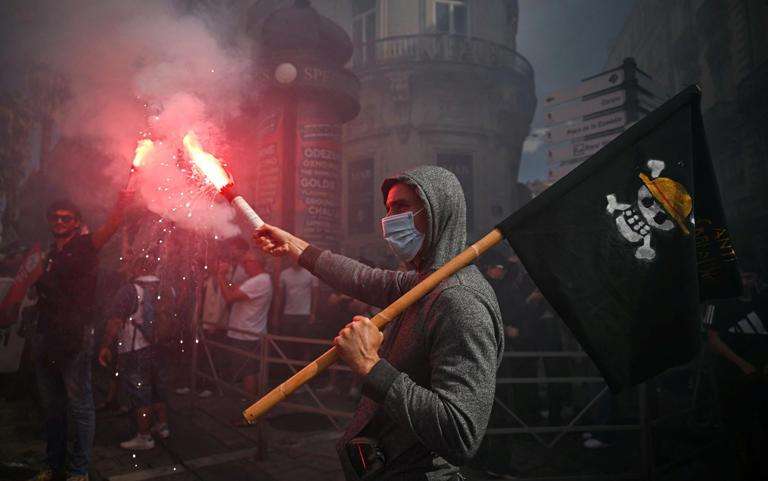
_7.jpg)

_8.jpg)


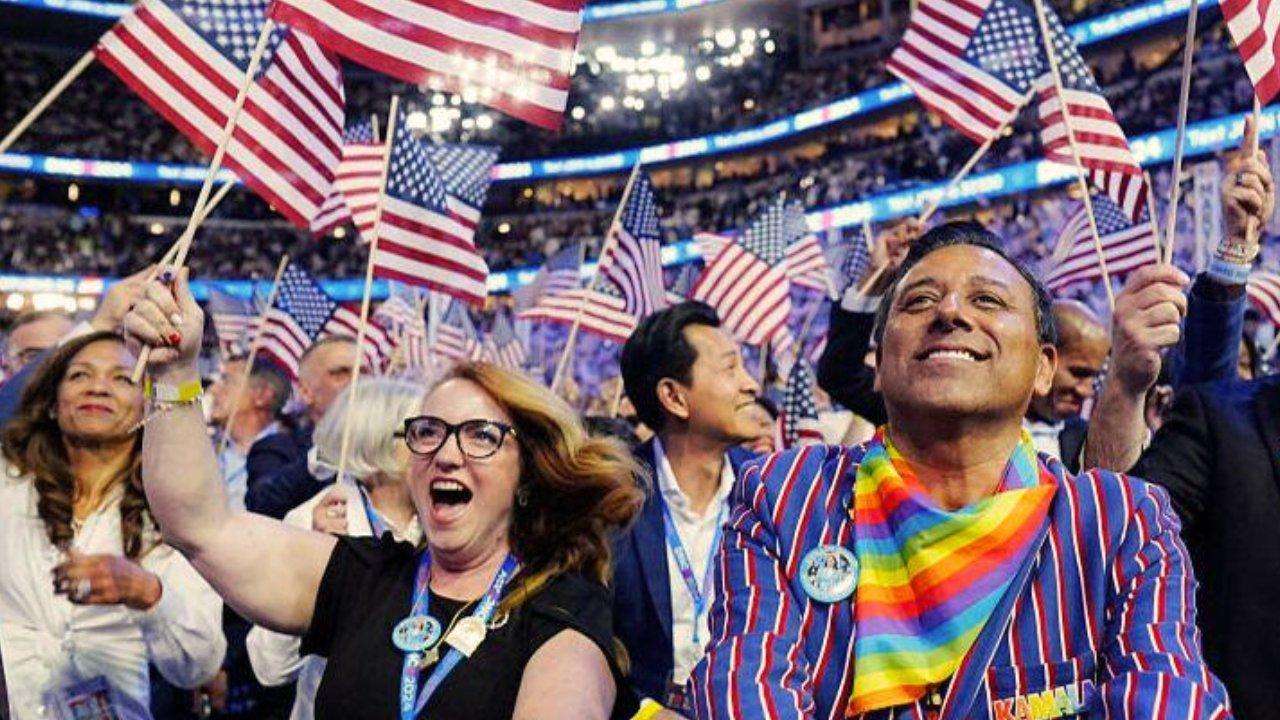
.svg)

